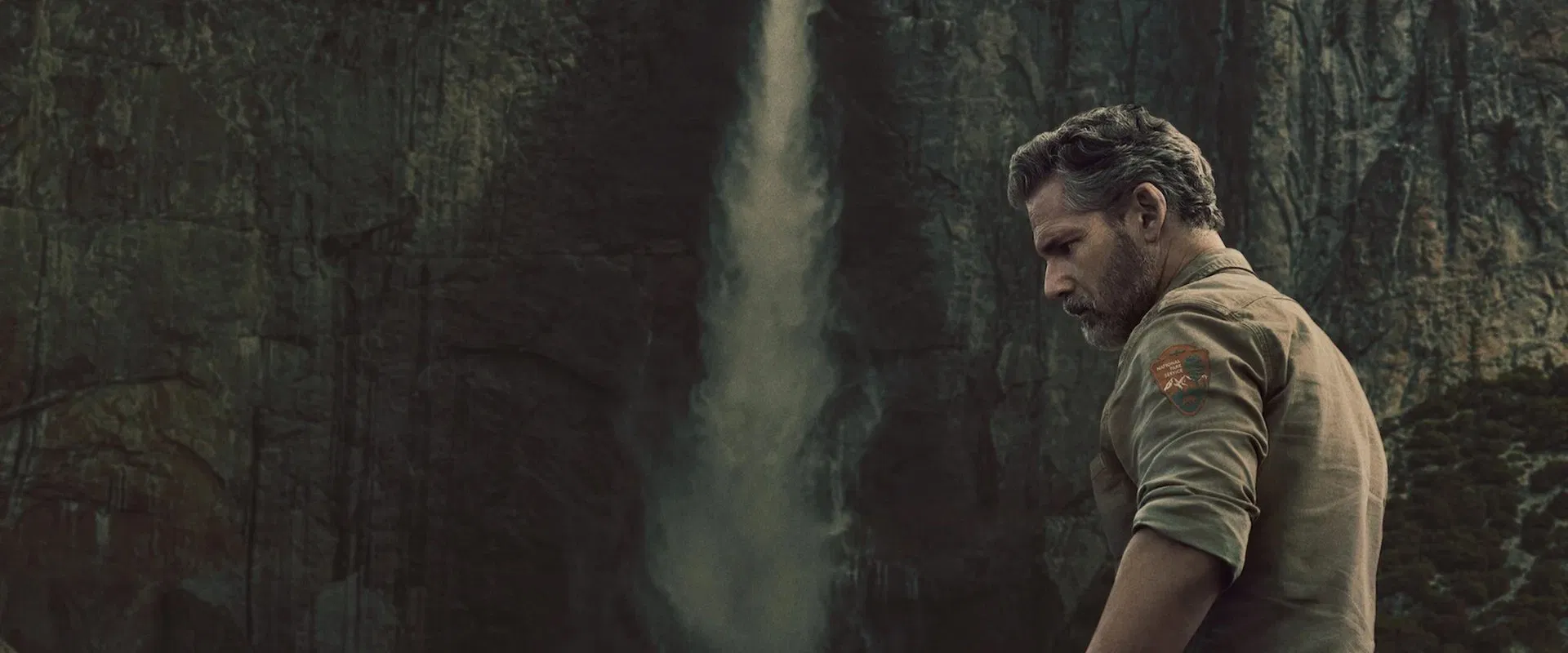It’s almost a shame, watching Untamed, to see how little faith the show has in the very wilderness it fetishizes. From its opening moments—where a body falls off El Capitan, landing with the grace of a screenwriter’s design rather than the force of gravity—we are meant to believe we’re entering that coveted realm: the prestige procedural, taut with secrets and wound as tightly as a coil of survival rope. And yet, by episode two—somewhere between the first heavy downpour (that leaves nary a footprint erased) and the second miraculous rescue in a park the size of Luxembourg—the spell begins to lift and what’s left is a potboiler searching for a kettle.
For a while, Untamed seduces. Yosemite is the real star, and the show, to its credit, knows it. The gold-tinted dawns and teal-inked shadows are nearly narcotic; the drone shots ache with longing. It’s a series allergic to ugliness—every ridge a monument, every mist an invitation. You want to walk out your door and fill your lungs with something wild and uncurated. If all we needed was a televised hike, Netflix would have a classic.
But the human drama, oh, how it trudges. The set-up promises much—Eric Bana’s grieving agent, Sam Neill as the gruff-cheeked ranger, Rosemarie DeWitt’s brittle ex-wife, every one of them haunted by loss or failure or both. In crime fiction, the wilderness is often a metaphor; here, it’s the world’s most scenic plot device. Except the procedural machinery is always showing its gears. Each time a crisis arises (trapped in a cave), the rescuers appear on cue, as if the gods of the writers’ room are divvying miracles. Trackers work miracles too—mudslides or no! I don’t claim to be an expert on the science of search and rescue, but when a character is located in a flooded tunnel with the ease of finding your car in a strip-mall lot, I can’t help but imagine the script being divined by someone’s Google search history: “Can you track footprints after rain?” The answer, it seems, is always yes—if the episode demands it.
Untamed has a peculiar relationship with the convenience of coincidence. It jitters along on predictable rails—every emotional beat, every reunion, every dark secret unspooling just when you expect (or dread) it. The six episodes play like a catalog of narrative short-cuts: a mine shaft here, a suspicious ex–cop there, each with enough pain in their backstory to fill two HBO miniseries. Would that the writers had trusted their setting, or perhaps their audience, a bit more—the show seems almost apologetic about being merely a mystery, so it bloats itself with subplots. One, notably involving a suicide attempt and a years-old murder, is handled with the self-congratulation of a miniseries that wants you to take its trauma seriously, while still clearing time to get everybody to the next narrative checkpoint.
The show’s most grave sin is its ending—not disastrous, merely inert. The threads are not woven; they’re tied off with a shrug. After all the slow-burn promises, the finale races through its reveals. Resolutions feel perfunctory—a confession here, a suicide there, and by the time Bana’s agent sets off toward his future, you realize the emotional stakes have dissolved into mountain mist. The mystery, like the rain-washed tracks, proves less durable than the show would hope.
Yet, a strange thing happens: despite my griping, Untamed is never less than watchable. The cast is solid—Eric Bana, effortlessly alluring, with that video-game gravitas that should make Joel Miller fans weep; Sam Neill, stately as always, his quiet mournfulness riding just beneath the ranger’s surface; Lily Santiago, brighter than her script allows. These are actors you’d follow into a blizzard, had the writers not left such conspicuous breadcrumbs for you to find them. The pace—blessedly, mercifully—never drags. At six hours, you can mainline the show in a sickbed haze or a lazy Saturday, and never really regret it.
Perhaps that’s the series' ultimate comfort and curse. It’s a buffet of beautiful melancholy, eminently bingeable, and utterly familiar—thriller television in a National Park Service uniform, exchanging “gritty” for “scenic.” The plot is reheated, the mysteries warmed over, but the scenery is as new and inviting as a dawn hike.
Would your life be markedly improved by watching Untamed? No. But on a rainy weekend, or with a cold on your chest and the walls closing in, you could do far, far worse than lose yourself in the misty stretches of Yosemite, even if the path always leads exactly where you’d expect. It’s television you’ve seen in a dozen fonts—handsome, heavy on atmosphere, and just shy of greatness. A postcard series, addressed to no one in particular.


